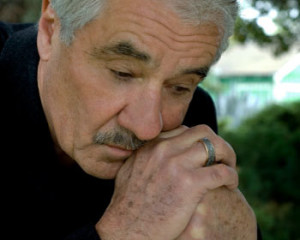 Grieving the loss of a child is one of the most painful things a parent can go through and it is not something that can be rushed. However, it is imperative to the grieving parent’s mental health that they do move on eventually, lest they become stuck in a state of grieving indefinitely. The thought of moving on from the loss of a child sounds relieving to some and awful to others. For some, the need to move on and continue life comes naturally in time, and is a welcome change. For others, the idea of moving on seems wrong, as if they are forgetting about their beloved child. Both ways of thinking are certainly understandable.
Grieving the loss of a child is one of the most painful things a parent can go through and it is not something that can be rushed. However, it is imperative to the grieving parent’s mental health that they do move on eventually, lest they become stuck in a state of grieving indefinitely. The thought of moving on from the loss of a child sounds relieving to some and awful to others. For some, the need to move on and continue life comes naturally in time, and is a welcome change. For others, the idea of moving on seems wrong, as if they are forgetting about their beloved child. Both ways of thinking are certainly understandable.
Grief is present everywhere in humanity, but the resilience to overcome grief is also everywhere in humanity. Even if moving on from the loss of a child feels wrong, you must push through your grief steps for your own good. It is not natural to dwell on death for a long amount of time. All of human productivity, optimism and forward movement depends on moving on from grief. Think of the innocent life of your child and the optimism that children naturally exude. Children can also have the remarkable gift of peace with death, which adults would do well to emulate. Think of how they would have wanted their parent happy and healthy instead of wallowing.
It is the responsibility of the individual, as well as their support system, to see that they learn to move on and gain their life back. It is easy to become stuck in a cycle of grief when someone loses a child. The pain is intense and pervasive. Many people mistake grief for a way of life instead of a phase of life that is meant to be temporary and find themselves unable to move on from it. Extended grief is not a natural state, but any form of grief can become extended grief. In fact, some parents choose to become addicted to a substance that is out of character. Therefore, it is important to check into substance abuse rehab Canada and address the issue before it becomes a problem.